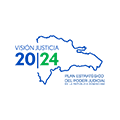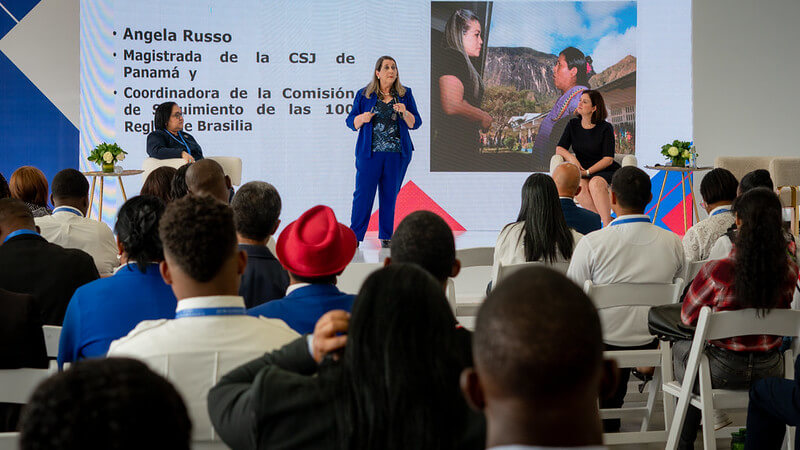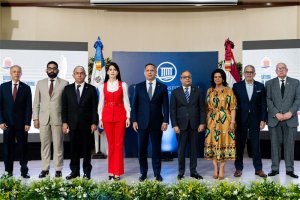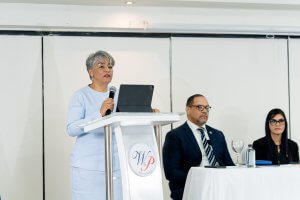Justice Maite Oronoz, Chief Justice of the Supreme Court of Puerto Rico, highlighted the importance of gender mainstreaming to promote equality and prevent gender-based discrimination.
The magistrate made the statement while addressing the panel "Intersectional Perspective in the Judicial Service", together with magistrates Martha Díaz Villafaña, president of the Civil and Commercial Chamber of the Court of Appeals of San Francisco de Macorís, and Ángela Russo, of the Supreme Court of Justice of Panama, within the framework of the celebration of the Judicial Power 2024 Conference.
Oronoz commented that it is from this perspective that we must look at how we want to shape the Judicial Branch of the future.
He indicated that this justice cannot be formed without contemplating inclusiveness as part of this access to service.
"I think that, if we really want to make a difference, we have to design an inclusive system that provides service to populations and groups that have historically been rejected or excluded from the services we provide in the judiciaries."
He explained that the concept of gender perspective is not new, since it emerged more than 50 years ago at a United Nations (UN) conference on women.
He defined the gender perspective as a tool to include women's interests in the idea of development to counteract policies described as neutral.
He stated that diversity as a norm "helps us to look at the law from a different perspective and in a more empathetic manner, adjudicating each person according to his or her circumstances". He also indicated that the mandate of equality implies that those who impart justice must deconstruct the way in which the law has been interpreted and applied.
He favored implementing public policies within the Judicial Branch and ensuring that the service offered is as equitable as possible.
Martha Díaz Villafaña stated that gender discrimination can also coexist with other forms of discrimination based on ethnic, social, economic, educational or any other specific condition.
He defined intersectionality as a guarantee to reduce barriers to access to justice.
He informed that the Judicial Branch has instruments that recognize the intersectional perspective in the service of justice.
"That is why, since 2007, we have had a Gender Equality Policy in the Judiciary, which was then operationalized in an operating regulation of the aforementioned policy in an implementing regulation of the aforementioned policy."
He also explained that these instruments will help to reduce barriers to access to justice, taking into account the particularities of different groups.
He clarified that a project on gender intersectionality has been designed between the judiciaries of the Dominican Republic and Puerto Rico, in connection with this edition of the Ibero-American Judicial Summit, which brings together the presidents of the 23 countries of the region.
He said that the new order invites that neither a person's sex nor his or her sexual preference can be grounds for exclusion.
Finally, Judge Ángela Russo stressed the importance of the judiciary continuing to meet through the Ibero-American Judicial Summit to see how to solve the issue of access to justice and gender discrimination.
He recalled that in 2008 the Summit created the One Hundred Rules of Brasilia, which is a Guide to help people have easier access to justice.
"There is an apparent neutrality of the norm. Our constitutions say that we are all equal before the law, but deep down that is not true when we go to practice, and as has been said here, we judiciaries need the credibility of the users of the system."

















